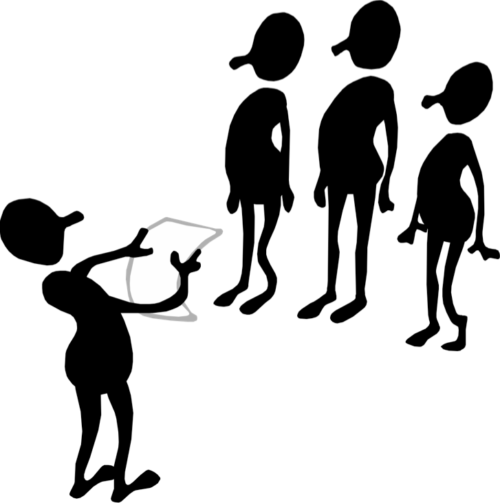Without effective leadership, you can win the agenda but lose the meeting. Meeting competence demands that you take responsibility to prevent collective incompetence.
For example, do not allow ‘showboating’ and meetings within meetings. Additionally, consider the following suggestions to improve meeting competence.
Meeting Competence Considers . . .

Meeting Competence Derives from the Discipline
- Acronyms and BuzzWords—Create a visual legend for cryptic terms. Participants assume that others understand everything they say. We may not but we do need a facilitator to help validate acronyms and buzzwords.
- Competition—do not allow participants to play political games. Keep them focused on the deliverable of each question, agenda item, and meeting result.
- Different Agendas—Ensure participants that you know where you are and where you are going and do not permit competing agendas that cause scope creep and meetings that go out of control.
- Distractions—The guiding principle for every facilitator is to remove distractions so that the group can focus on the issue at hand. Distractions range from creature comfort (e.g., temperature) to cultural (e.g., electronic leashes such as smartphones).
- Impotent Members—Many meetings involve people who are brought in to observe, rather than contribute. If so, separate them physically by seating them in the back or around the perimeter.
- Miscommunications—listen, observe, clarify, and confirm. Need we say more?
- Outside Pressures—Get to know your participants and some of the issues that drive their thinking and behavior. Complete your assessment before the meeting begins. You cannot conduct personality profiling during a meeting and be an effective listener at the same time.
- Personal Feelings—As a neutral facilitator, depersonalize issues that arise and have others focus on performance, not the people.
- Triviality—Do not allow your participants to dive too deep into the weeds and talk about HOW when most discussions should focus on WHAT needs to be different. If strategic issues (i.e., WHY) arise, set them aside for a different forum.
Meeting Competence May Demand that Less is Better
With meetings, less can be more. Holding unnecessary meetings can undermine your reputation. Do not confuse or substitute meetings for work. As a meeting participant, never attend to yourself without knowing what you want to accomplish during the meeting and what you need to take out of it. As we say repeatedly and illustrate as the title of the MG RUSH meeting competence holarchy, know what “DONE” looks like. Your meeting competence will follow.
______
Don’t ruin your career by hosting bad meetings. Sign up for a workshop or send this to someone who should. MGRUSH workshops focus on meeting design and practice. Each person practices tools, methods, and activities every day during the week. Therefore, while some call this immersion, we call it the road to building high-value facilitation skills.
Our workshops also provide a superb way to earn up to 40 SEUs from the Scrum Alliance, 40 CDUs from IIBA, 40 Continuous Learning Points (CLPs) based on Federal Acquisition Certification Continuous Professional Learning Requirements using Training and Education activities, 40 Professional Development Units (PDUs) from SAVE International, as well as 4.0 CEUs for other professions. (See workshop and Reference Manual descriptions for details.)
Want a free 10-minute break timer? Sign up for our once-monthly newsletter HERE and receive a timer along with four other of our favorite facilitation tools, free.

Terrence Metz, president of MG RUSH Facilitation Training, was just 22-years-old and working as a Sales Engineer at Honeywell when he recognized a widespread problem—most meetings were ineffective and poorly led, wasting both time and company resources. However, he also observed meetings that worked. What set them apart? A well-prepared leader who structured the session to ensure participants contributed meaningfully and achieved clear outcomes.
Throughout his career, Metz, who earned an MBA from Kellogg (Northwestern University) experienced and also trained in various facilitation techniques. In 2004, he purchased MG RUSH where he shifted his focus toward improving established meeting designs and building a curriculum that would teach others how to lead, facilitate, and structure meetings that drive results. His expertise in training world-class facilitators led to the 2020 publication of Meetings That Get Results: A Guide to Building Better Meetings, a comprehensive resource on effectively building consensus.
Grounded in the principle that “nobody is smarter than everybody,” the book details the why, what, and how of building consensus when making decisions, planning, and solving problems. Along with a Participant’s Guide and supplemental workshops, it supports learning from foundational awareness to professional certification.
Metz’s first book, Change or Die: A Business Process Improvement Manual, tackled the challenges of process optimization. His upcoming book, Catalyst: Facilitating Innovation, focuses on meetings and workshops that don’t simply end when time runs out but conclude with actionable next steps and clear assignments—ensuring progress beyond discussions and ideas.



